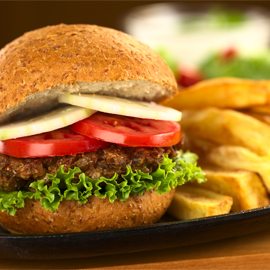
Studies have shown that the same pleasure centers of the brain that are accessed by the use of drugs like cocaine and heroin can also be activated by food, possibly leading to a food addiction.
This happens especially with foods that are rich in sugars, fats and salt. These types of foods are called highly palatable foods. Like addictive drugs, these foods trigger pleasurable chemicals in your brain such as dopamine. Once you experience pleasure associated with increased dopamine in the brain’s reward pathway, you will feel the need to eat again. The reward signals from these highly palatable foods may override your ability to feel full and cause you to continue eating. This can lead to overeating. This is an especially problematic addiction if you are struggling with obesity.
You may have an Addiction to food If:
- You end up eating more than planned once you start eating specific foods.
- You keep eating certain foods even if you’re no longer hungry.
- You eat to the point of feeling ill.
- When certain foods are unavailable, you go out of your way to obtain them.
- You experience withdrawal symptoms like anxiety or agitation when you are unable to eat certain foods.
- You feel shame or guilt when eating.
- You often eat alone.
Food addiction can become harmful and disruptive to your regular lifestyle. Food addiction may play an important role in obesity. If you are struggling with obesity and cannot seem to control specific cravings past the point of hunger, you may have a food addiction. Food addicts are constantly concerned about food and when they will be able to eat. Concerns for health, relationships and daily activities become less and less important.
Treating a Food Addiction
Since obesity increases your risk of numerous serious medical conditions, you want to take every precaution in treating it. If you are obese and believe you may have a food addiction you’ll want to find nutritional assistance and possibly psychotherapy. Medication may be prescribed in some cases of food addiction but not all of them. Treating your addiction is only the first step to getting healthier. In order to lose weight you may want to consult with a weight loss surgeon or specialist. Don’t let an addiction ruin your health, or your life. Seek help from addiction or weight loss specialists, local support groups or twelve step programs today.


